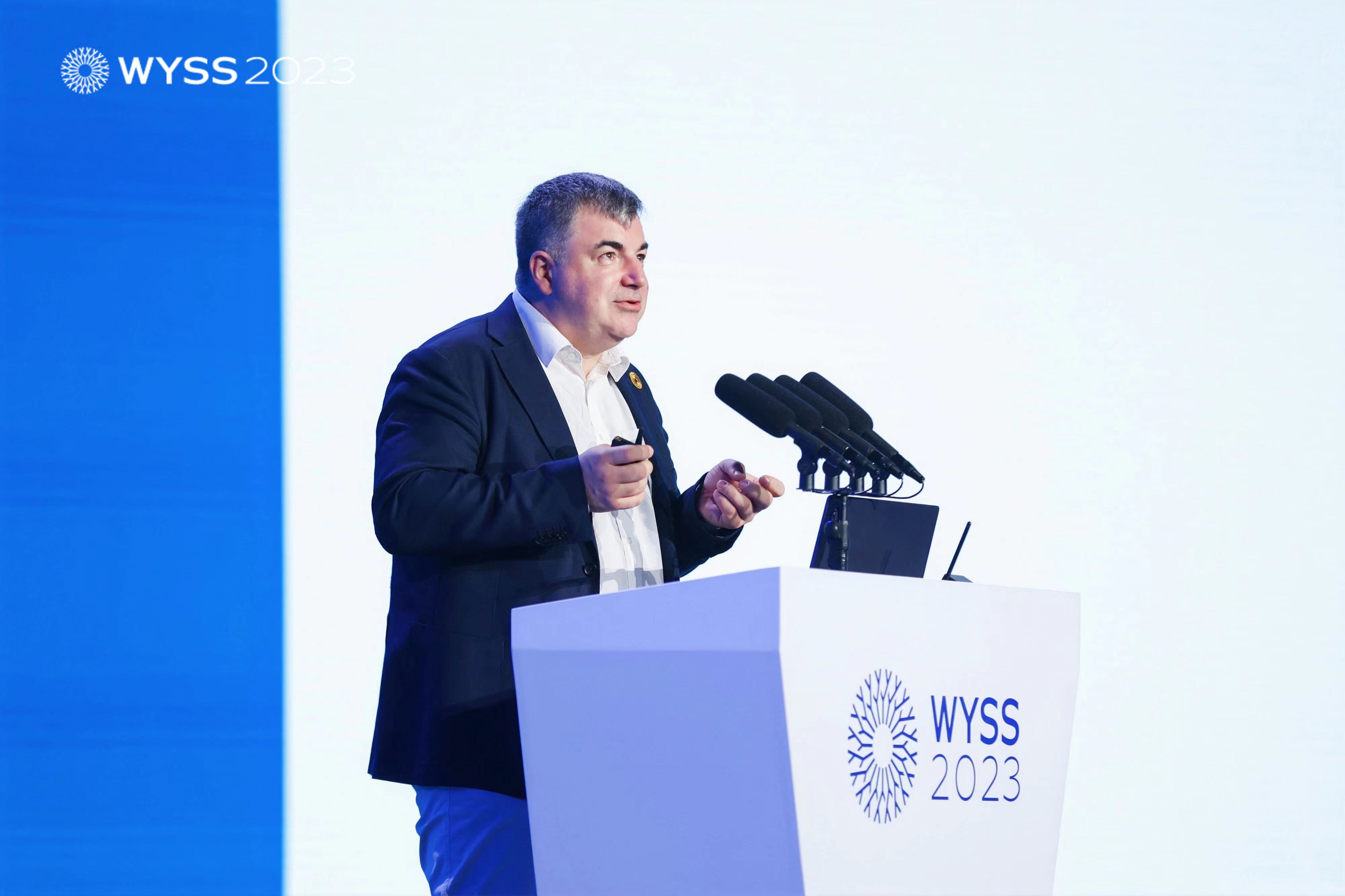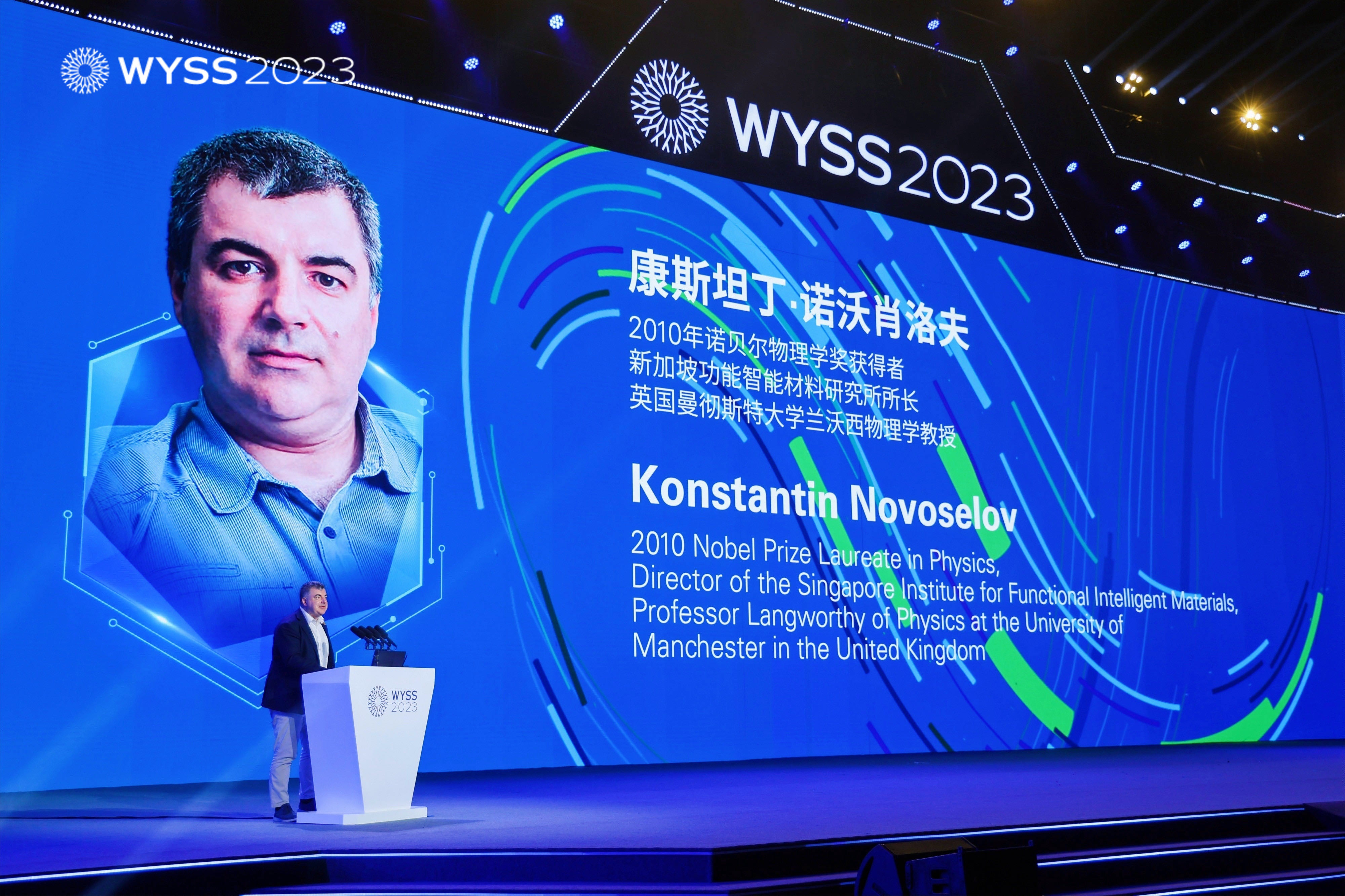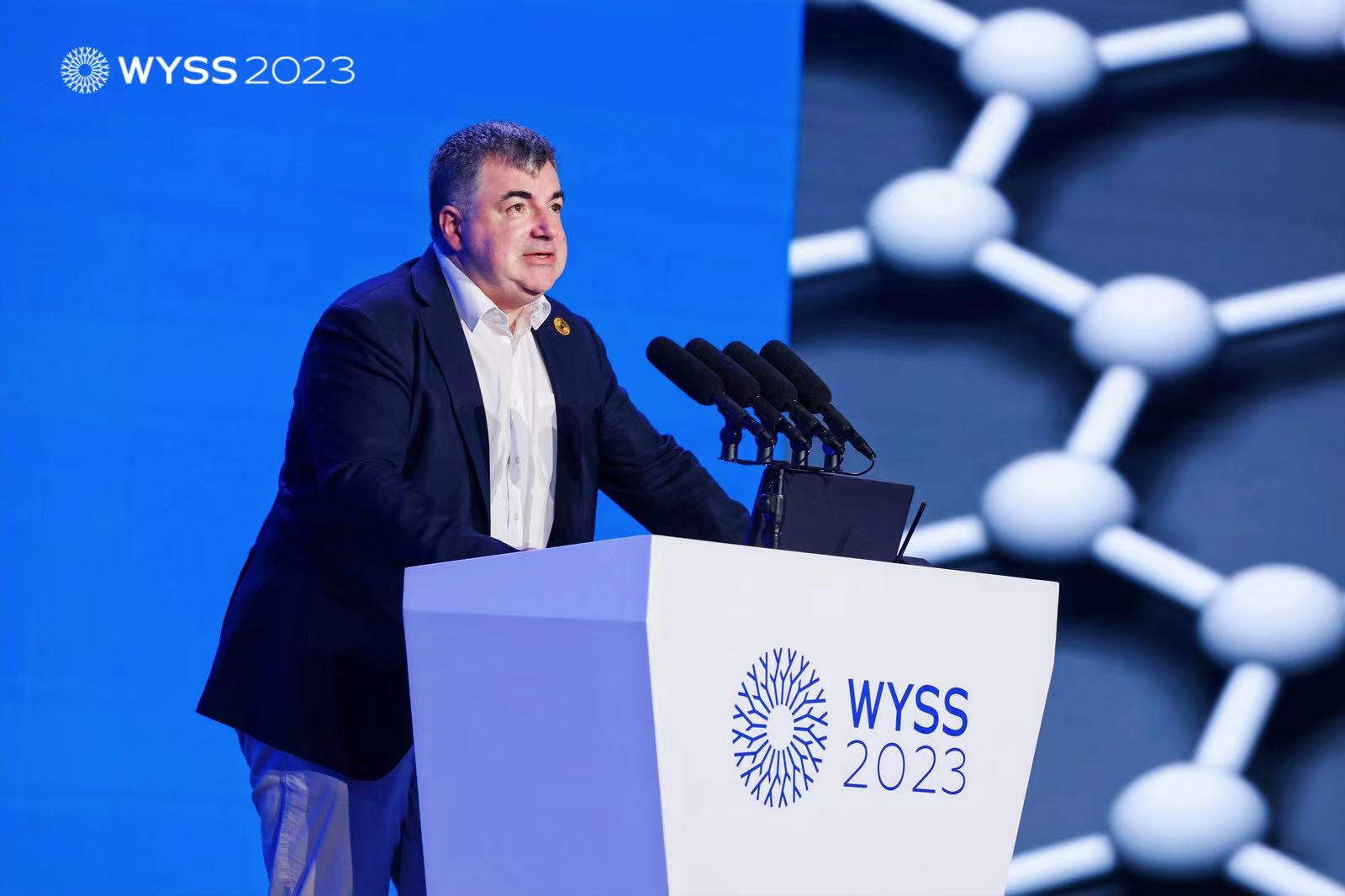The WYSS 2023 was held in Wenzhou from November 11 to 12, with several Nobel Prize winners in attendance. They delivered keynote speeches on sustainable development, the training of young scientists, international cooperation among countries, joined in the discussions, and received interviews with the media, highly praising China’s technological achievements.
Among them, Konstantin Novoselov, Nobel laureate in Physics in 2010 and a member of the European Academy of Sciences, gave a keynote speech. As the youngest Nobel laureate in Physics since 1973, he has been a scientist deeply involved in graphene research for over twenty years. After concluding his keynote speech, he received an exclusive interview with reporter.
Profile

Konstantin Novoselov, Nobel laureate in Physics in 2010, member of the European Academy of Sciences, fellow of the Royal Society, member of the American National Academy of Sciences, director of the Institute for Functional Intelligent Materials in Singapore, and Langworthy Professor of Physics at the University of Manchester.
Reporter: It’s my honor to interview you. How do you find Wenzhou?
Novoselov: Although I have only spent several hours in Wenzhou, I find it a vibrant and beautiful city. I am happy and look forward to visiting Wenzhou again in the future. Wenzhou has a rich industrial heritage, so I also look forward to collaborating with more industrial enterprises in Wenzhou to create joint projects.

Reporter: You are one of the discoverers of graphene. What do you think the future trends are for the development of new materials like graphene? How do you think Wenzhou should develop this industry? What suggestions do you have?
Novoselov: As a scientist, I have always been very excited about embarking on new projects. I have done research on graphene for over 20 years, and to this day, graphene remains a highly active research field, especially in the field of physics, which is particularly thrilling for me. We are currently in the phase of practical applications of graphene. The development of graphene applications, especially in China, is very encouraging. Currently, graphene applications are expanding into new areas. I believe that now is a great time for China and the world to develop the graphene industry, which is why we are seeing more and more breakthroughs in graphene applications. Some promising applications include electronics, optoelectronics, graphene materials, as well as sustainable development areas like catalysts and fuel cells, which are also very intriguing. So, the future potential for development is enormous.
Reporter: I am curious, as the youngest Nobel Prize laureate in Physics since 1973, what do you think led to you receiving the Nobel Prize? What qualities do you think are essential for researchers? Could you give some advice to young scientists?
Novoselov: The most important strategy for my success is actually having no strategy at all. A colleague, also my friend, once told me that if you are solely focused on winning a Nobel Prize, it will never come to you. So, the only strategy is to focus on your work, immerse yourself in it, and the awards will come naturally. Therefore, the key is to concentrate on research rather than solely aiming for awards.
Reporter: You have established projects in cities like Nanjing and Chongqing in China, collaborating with many young Chinese scientists and scholars on various research projects. Do you have plans for further communication and interaction in Zhejiang or Wenzhou?
Novoselov: We already have some collaborative projects with Zhejiang Province. One of my former students, who is now teaching at Zhejiang University, worked with me to design some courses for Zhejiang University related to new materials and quantum mechanics. We also pay close attention to collaboration opportunities with Wenzhou, as it is one of the most developed industrial areas in China. I am delighted to engage in more collaborative projects in the future, focusing mainly on future materials, sustainable materials, and other industrial projects.

Reporter: The theme of the WYSS is “Converging the World's Talents, Creating a Better Future.” The summit has been held in Wenzhou for 5 years. What advice do you have for it?
Novoselov: I believe that most of the world’s problems can be solved through science. Science has always been the engine driving the development of human society. However, science cannot progress on its own; it requires the participation of scientists. Therefore, nurturing talents is a crucial aspect of development. I think the WYSS can attract more talents to engage in the field of technology, thus promoting sustainable development in the future.
